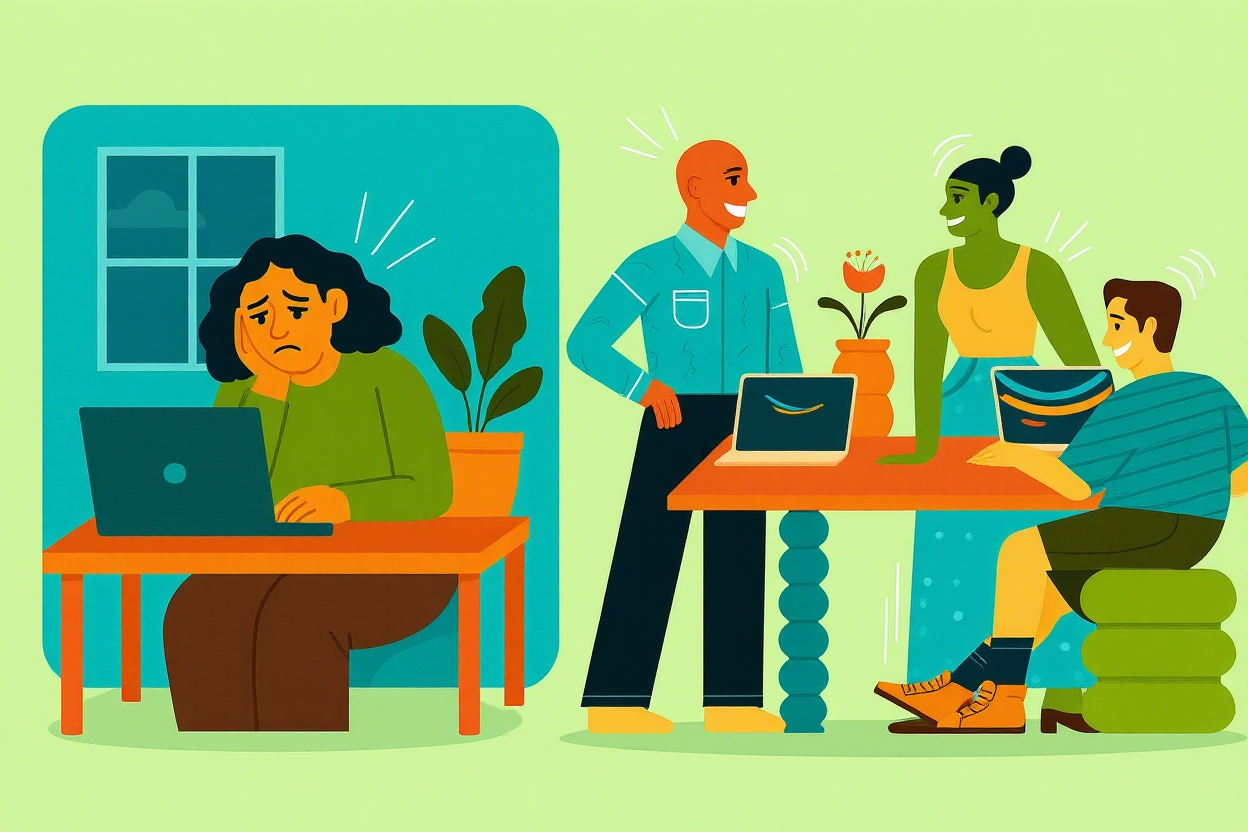Remote Workers Are Abandoning Home Offices
The coworking industry is witnessing something unexpected. Remote workers are filling these spaces in record numbers, with remote workers now comprising 68% of coworking space users according to recent industry data.
This sounds contradictory. Why would someone who works remotely choose to leave their home office for a shared workspace?
The answer reveals something fundamental about how we think about work environments. Traditional offices and home offices both create what industry insiders call "confines" that limit human potential.
The Bedroom Office Experiment Failed
Working from bed sounds appealing until you try it for months. The psychological boundaries between rest and productivity blur.
Small apartments compound the problem. Many remote workers lack dedicated office space, forcing them to work from kitchen tables or bedroom corners. Research shows that 42% of remote workers don't have a dedicated home office space.
But space constraints tell only part of the story. Even workers with home offices are choosing coworking spaces for different reasons entirely.
They're seeking what traditional work environments systematically destroy: low-friction human interaction. McKinsey research indicates that 76% of executives believe in-person interaction is critical for building company culture.
Generational Transformation
Younger workers drive this transformation. They expect coworking spaces to provide more than desk space. PwC research indicates that 83% of millennials and Gen Z workers prioritize workplace flexibility over traditional office benefits.
These environments become platforms for self-improvement. Workers discover new ways to approach their craft within spaces designed to bring out their best performance. Gallup studies show that engaged employees in well-designed environments are 23% more profitable.
The concept extends beyond productivity metrics. These spaces enable personal development, skill acquisition, and mindset evolution.
This generation refuses to accept the confines that previous workers tolerated.
Beyond Workspace to Life Space
The most successful coworking spaces understand they're not just providing desks. They're creating environments where people can become their best professional selves. JLL research indicates that 67% of coworking members report improved work-life balance.
This philosophy attracts workers who view their workspace as part of their personal development strategy.
The result: spaces that combine the focus benefits of private offices with the energy and networking advantages of shared environments.
The future of work isn't about choosing between remote and office work. It's about creating environments that remove the confines both traditional models imposed.
Workers are discovering they can have privacy and community, focus and collaboration, professional development and personal growth within the same physical space.
The coworking evolution reveals what workers actually want: environments designed around human potential rather than corporate control.


